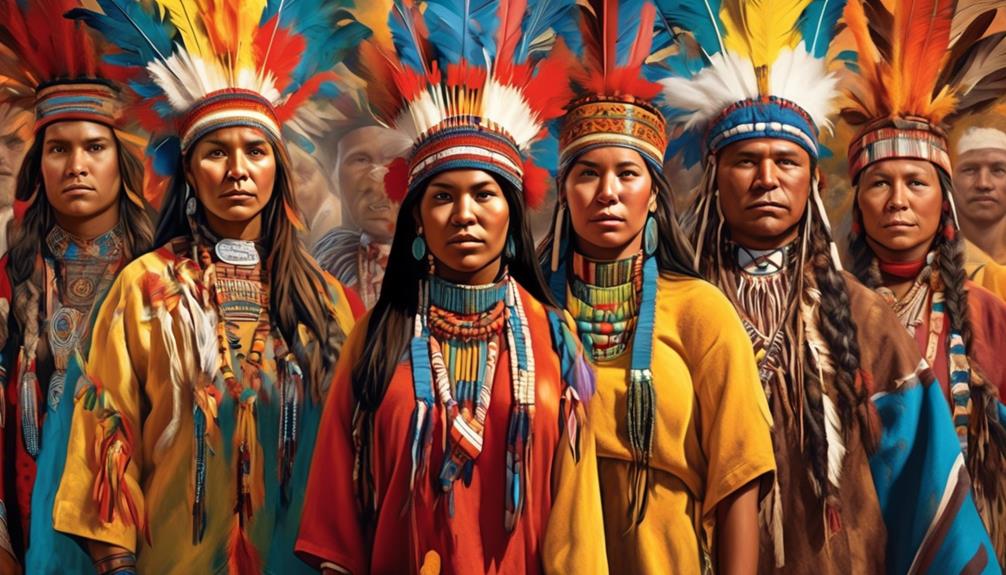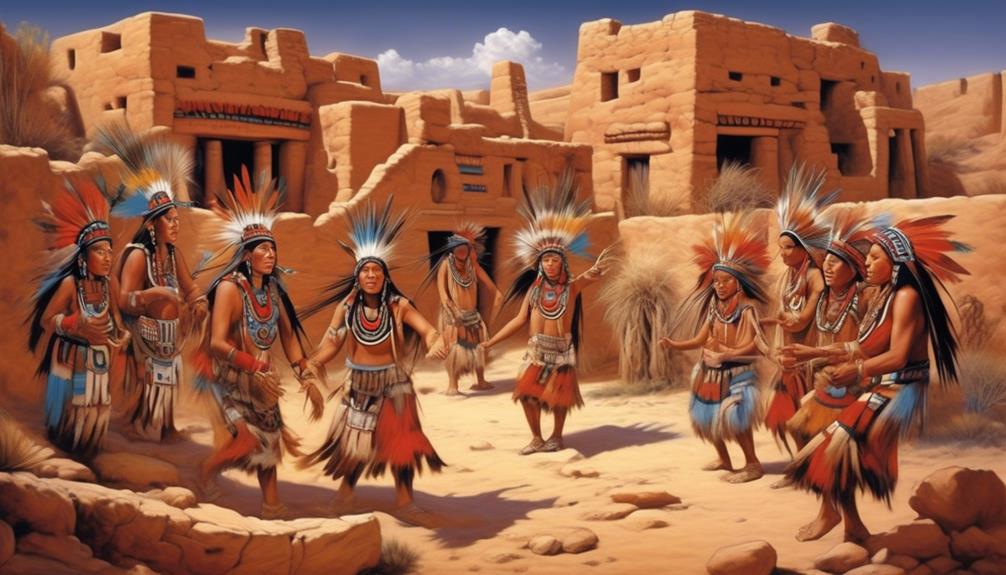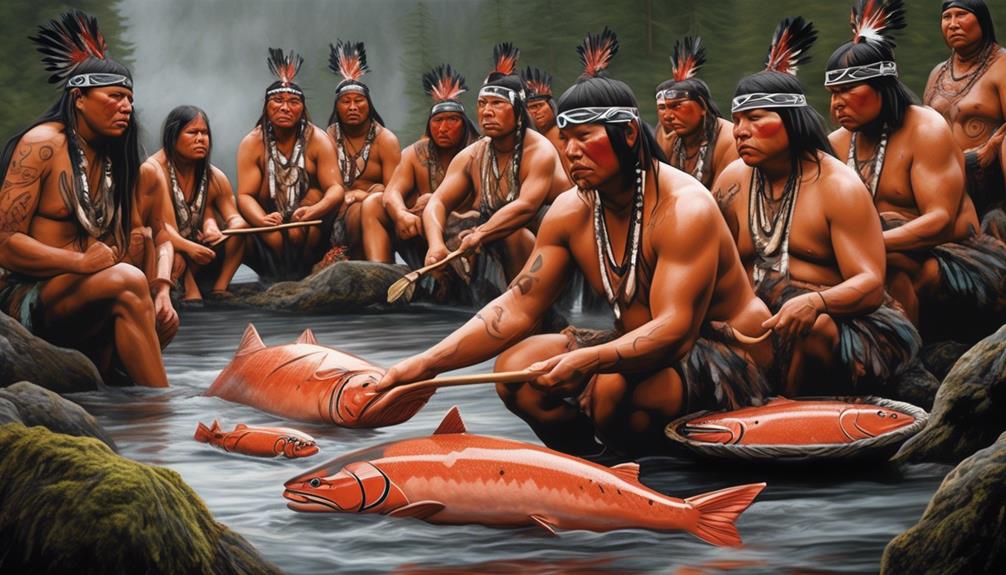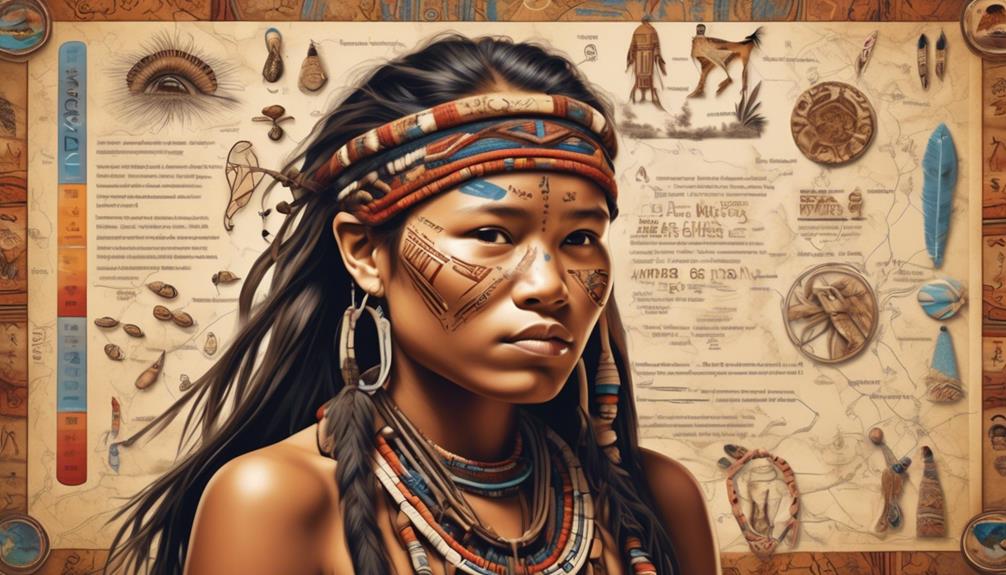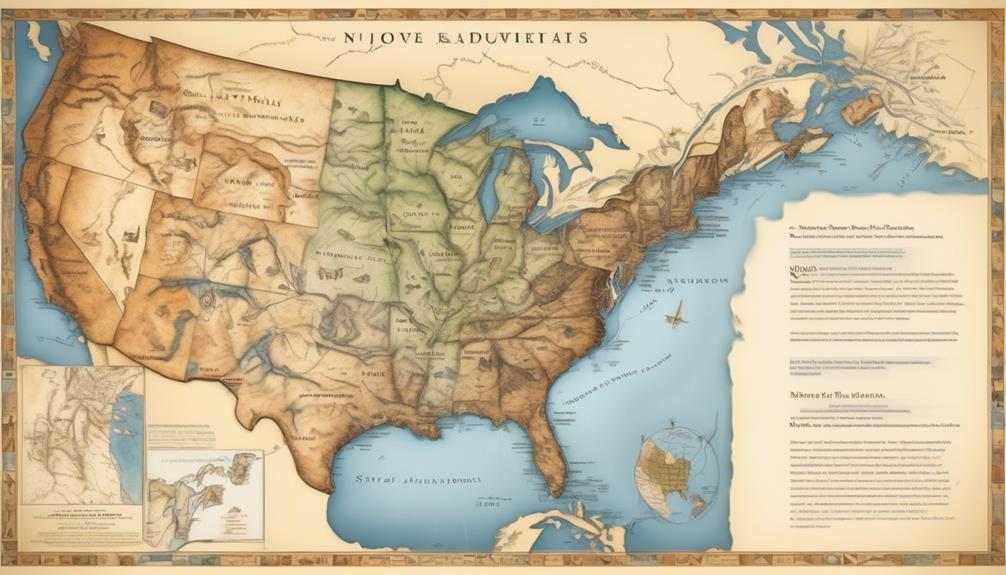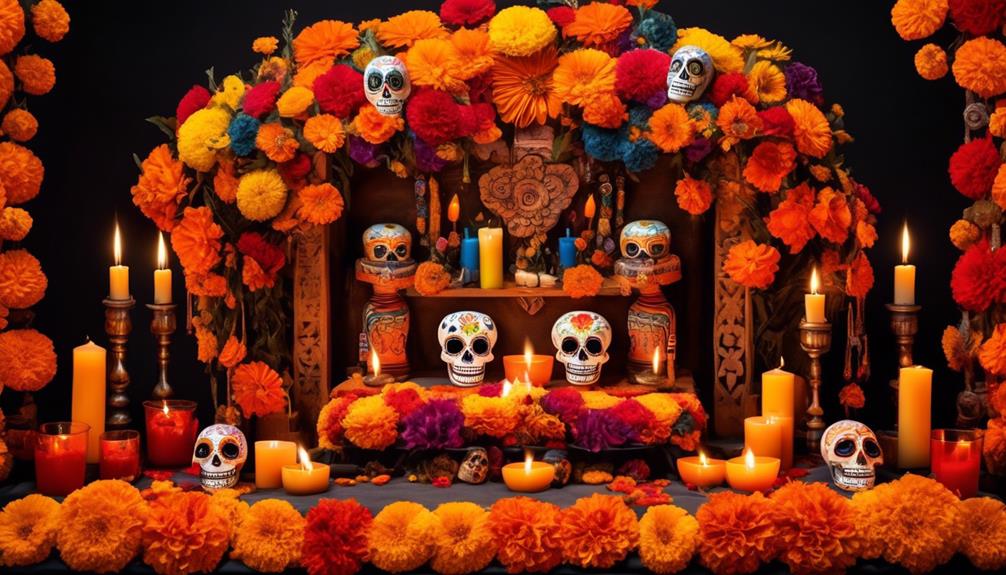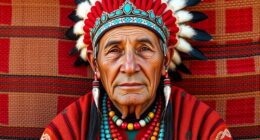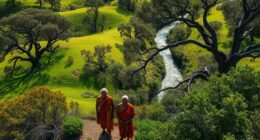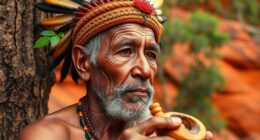Since 2020, 14 states in the United States have officially designated Indigenous Peoples Day, a celebration that recognizes and commemorates the accomplishments and heritage of Native American people.
However, beyond simply acknowledging the day, many people are unsure of how to appropriately commemorate it.
There are numerous meaningful ways in which we can observe Indigenous Peoples Day, and by doing so, we not only honor the indigenous communities but also contribute to raising awareness and understanding of their rich cultures and traditions.
Key Takeaways
- Attend Indigenous Peoples Day events such as community gatherings, storytelling sessions, and art workshops to appreciate and preserve Indigenous culture and heritage.
- Educate yourself on Indigenous history by reading literature by Indigenous authors, visiting museums, and engaging with elders and knowledge keepers to deepen your understanding.
- Support Indigenous-owned businesses by purchasing Indigenous art and crafts, patronizing restaurants and food vendors, and attending cultural performances to contribute to economic empowerment and cultural preservation.
- Engage in cultural activities such as participating in workshops, attending storytelling events, and visiting cultural centers and museums to gain a deeper understanding of Indigenous traditions.
Attend Indigenous Peoples Day Events
Let's explore the various ways to participate in Indigenous Peoples Day events in our community.
Firstly, community gatherings are an integral part of the celebrations. These gatherings are often filled with traditional dances that hold deep cultural significance. It's a wonderful opportunity to witness the rich heritage and history of Indigenous peoples through their mesmerizing and symbolic dance forms. The energy and spirit of these dances are truly captivating, offering a profound insight into their traditions.
Moreover, storytelling sessions are a cherished aspect of Indigenous Peoples Day events. Elders and community members share captivating stories that have been passed down through generations, offering a window into their worldview, values, and struggles. These sessions provide a unique chance to learn directly from the wisdom of Indigenous cultures.
Additionally, art workshops are often organized, providing a hands-on experience of Indigenous artistic practices. Participants can engage in activities like pottery, beadwork, or painting, learning about the symbolism and techniques behind these art forms. It's a meaningful way to appreciate and preserve Indigenous artistry.
Attending these events not only allows us to celebrate Indigenous Peoples Day but also fosters a deep respect and understanding of their culture and heritage.
Educate Yourself on Indigenous History
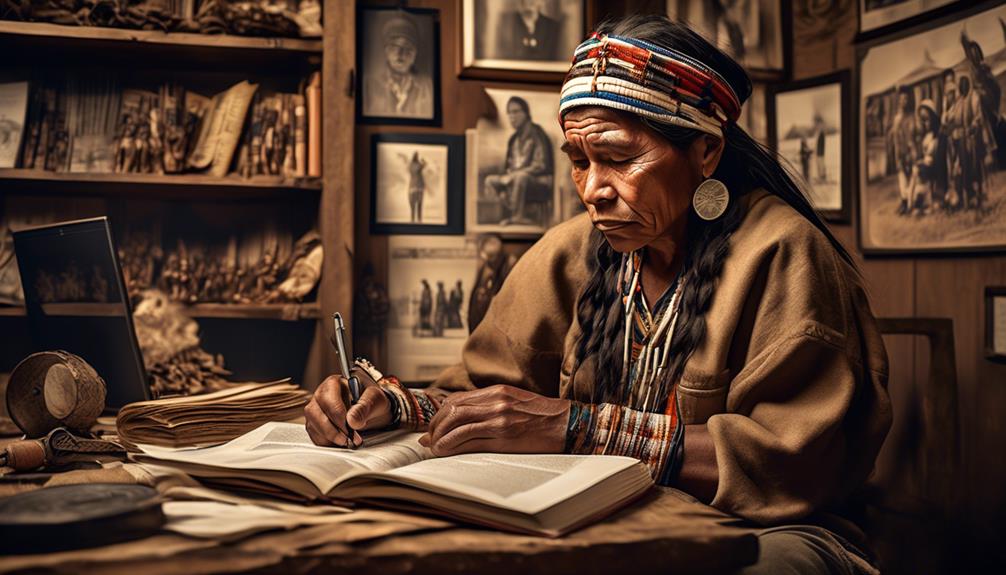
Exploring Indigenous history through reputable sources and engaging with the perspectives of Indigenous scholars provides a comprehensive understanding of their rich and complex heritage. To honor Indigenous resilience, it's crucial to delve into their history with respect and mindfulness. Here are some ways to educate oneself on Indigenous history:
- Read Indigenous Authors: Delve into literature written by Indigenous authors. Their works offer profound insights into the experiences, struggles, and triumphs of Indigenous communities.
- Visit Indigenous Museums and Cultural Centers: Explore traditional practices and artifacts at Indigenous museums and cultural centers. These spaces offer immersive experiences that provide a deeper understanding of Indigenous history and culture.
- Engage with Indigenous Elders and Knowledge Keepers: Listening to the wisdom and stories of Indigenous elders and knowledge keepers can offer invaluable perspectives on Indigenous history and traditions.
- Participate in Indigenous-led Workshops and Events: Joining workshops and events organized by Indigenous communities can provide firsthand learning experiences and foster a deeper connection with Indigenous history and heritage.
Support Indigenous-Owned Businesses
Supporting Indigenous-owned businesses is an impactful way to contribute to the economic empowerment and cultural preservation of Indigenous communities. By purchasing Indigenous art and traditional crafts, we not only support local artists and artisans but also help in preserving and promoting Indigenous artistic traditions. These pieces often carry deep cultural and spiritual significance, making them powerful symbols of Indigenous heritage.
Patronizing Indigenous-owned restaurants and food vendors allows us to savor the rich flavors of tribal cuisine while bolstering the economic autonomy of Indigenous communities. Additionally, attending cultural performances organized by Indigenous groups provides an opportunity to immerse ourselves in the traditions and storytelling of these vibrant cultures, while also financially supporting the artists and performers.
Embracing Indigenous businesses is a meaningful way to honor and uplift Indigenous voices and traditions. It fosters economic self-sufficiency within Indigenous communities and showcases the value of their unique cultural contributions. By actively seeking out and supporting Indigenous-owned enterprises, we can play a part in fostering a more equitable and diverse economic landscape.
Engage in Cultural Activities
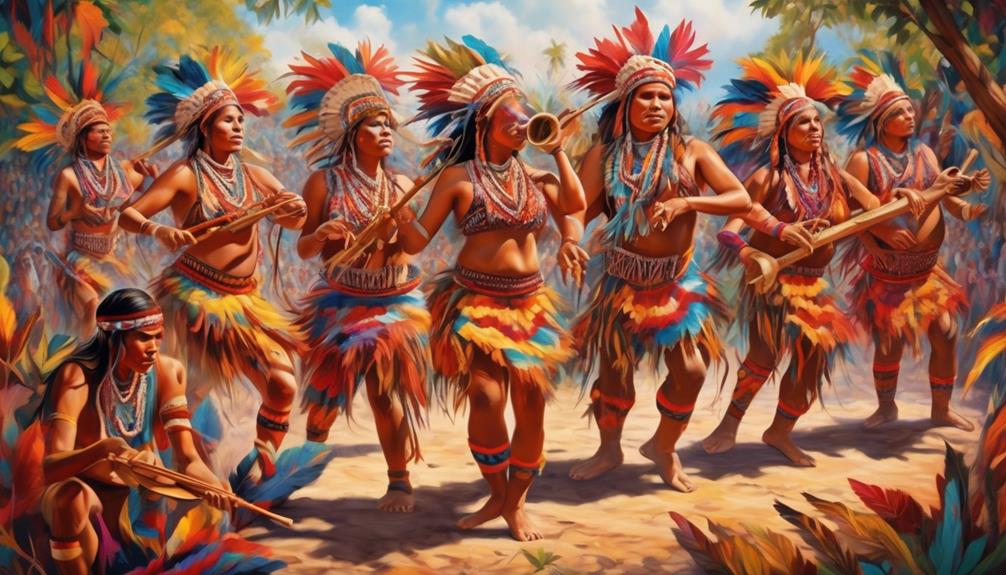
Engaging in cultural activities allows us to deepen our connection with Indigenous communities and further appreciate their rich traditions and heritage.
One way to do this is by participating in cultural workshops where we can learn traditional crafts and skills directly from Indigenous artists and artisans. These workshops provide an opportunity to gain a deeper understanding of the cultural significance behind various art forms and crafts, fostering a greater appreciation for Indigenous traditions.
Another impactful way to engage in cultural activities is by attending traditional storytelling events. Indigenous storytelling is a vital part of their heritage, often passing down knowledge, history, and moral lessons through generations. By participating in these events, we not only gain insight into Indigenous culture but also show our respect for their oral traditions.
Additionally, visiting Indigenous cultural centers and museums can offer immersive experiences, providing valuable insights into the history, art, and customs of Indigenous peoples.
Lastly, joining in traditional dance or music performances can be a powerful way to engage with and honor Indigenous culture.
Advocate for Indigenous Rights
In our efforts to honor and uplift Indigenous communities, we actively stand for the protection and promotion of Indigenous rights. Advocating for Indigenous rights involves a commitment to equality, representation, and activism. It requires us to actively engage in conversations and actions that support the rights of Indigenous peoples, acknowledging their unique cultural, historical, and political circumstances.
As advocates, we must amplify Indigenous voices, support their self-determination, and work towards dismantling systems of oppression that have marginalized Indigenous communities.
To advocate for Indigenous rights, we must prioritize authentic partnerships with Indigenous organizations and leaders, actively listen to their needs and concerns, and amplify their calls for justice. It's crucial to support Indigenous-led initiatives and movements that seek to address issues such as land rights, cultural preservation, and access to resources.
Additionally, advocating for Indigenous rights involves challenging stereotypes, promoting accurate representation, and educating others about the ongoing struggles faced by Indigenous communities.
Ultimately, advocating for Indigenous rights is a continuous and intersectional effort that requires solidarity, empathy, and a dedication to creating meaningful and lasting change.
Frequently Asked Questions
What Are Some Traditional Indigenous Foods and Recipes That I Can Incorporate Into My Indigenous Peoples Day Celebration?
When it comes to celebrating Indigenous Peoples Day, incorporating traditional recipes and indigenous ingredients is a meaningful way to honor and support indigenous communities. From bannock and wild rice to dishes featuring salmon and venison, there are numerous delicious recipes to explore.
Additionally, supporting indigenous artists and visiting artisan markets is a great way to appreciate and celebrate indigenous culture through their art and crafts.
Are There Any Specific Ways I Can Support Indigenous Artists and Artisans on Indigenous Peoples Day?
Supporting indigenous artists is crucial. Artisan markets, indigenous crafts, and indigenous art festivals are great places to find and celebrate their work. By purchasing their art, we can directly support their livelihoods and help preserve their cultural heritage.
Additionally, sharing their work on social media or attending events where they exhibit can help raise awareness of their talent and the importance of indigenous art in our society.
How Can I Respectfully Acknowledge the Land and the Indigenous Peoples Who Originally Inhabited It During My Indigenous Peoples Day Activities?
Respecting the land and acknowledging indigenous peoples is crucial during our activities.
It's vital to recognize that indigenous peoples have a deep connection to the land and their heritage. Understanding and appreciating their cultural traditions and history is essential.
Incorporating traditional foods and crafts not only honors their culture but also supports indigenous communities.
What Are Some Important Indigenous Leaders or Figures in History That I Should Learn About and Celebrate on Indigenous Peoples Day?
We should take the time to learn about important Indigenous leaders and figures in history, celebrating their contributions and honoring their legacies.
By recognizing Indigenous role models and trailblazers, we can gain a deeper understanding of their impact and struggles.
It's crucial to acknowledge and celebrate their achievements, ensuring their stories aren't overlooked.
This fosters respect and appreciation for Indigenous history and culture, enriching our collective knowledge and understanding.
How Can I Actively Advocate for the Preservation of Indigenous Languages and Cultural Practices on Indigenous Peoples Day and Beyond?
Preserving languages and cultural practices is crucial for supporting Indigenous communities.
Did you know that there are over 7,000 languages spoken globally, but many are endangered?
By promoting educational resources and advocating for language preservation, we can help protect these valuable cultural assets.
It's important to actively engage with Indigenous communities, learn from their wisdom, and amplify their voices.
Together, we can make a meaningful impact in preserving Indigenous languages and cultural practices.
Conclusion
So, let's all just ignore Indigenous Peoples Day and continue to celebrate Columbus Day because who needs to acknowledge the rich history and culture of indigenous peoples, right?
Let's just keep perpetuating harmful stereotypes and erasing their contributions to society. Yeah, that sounds like a great plan.
Or, you know, we could actually take the time to learn, support, and celebrate indigenous communities.
Just a thought.
